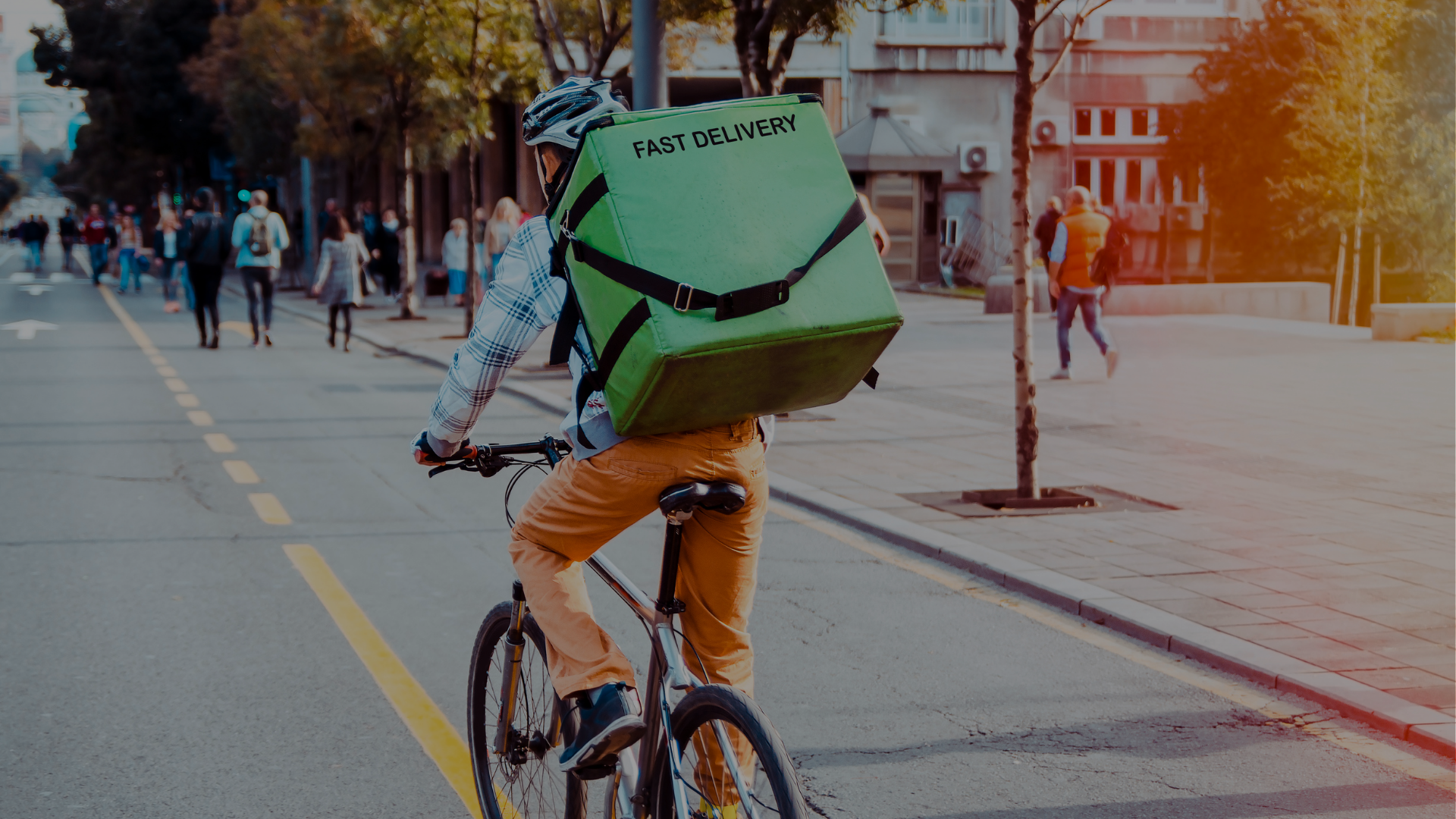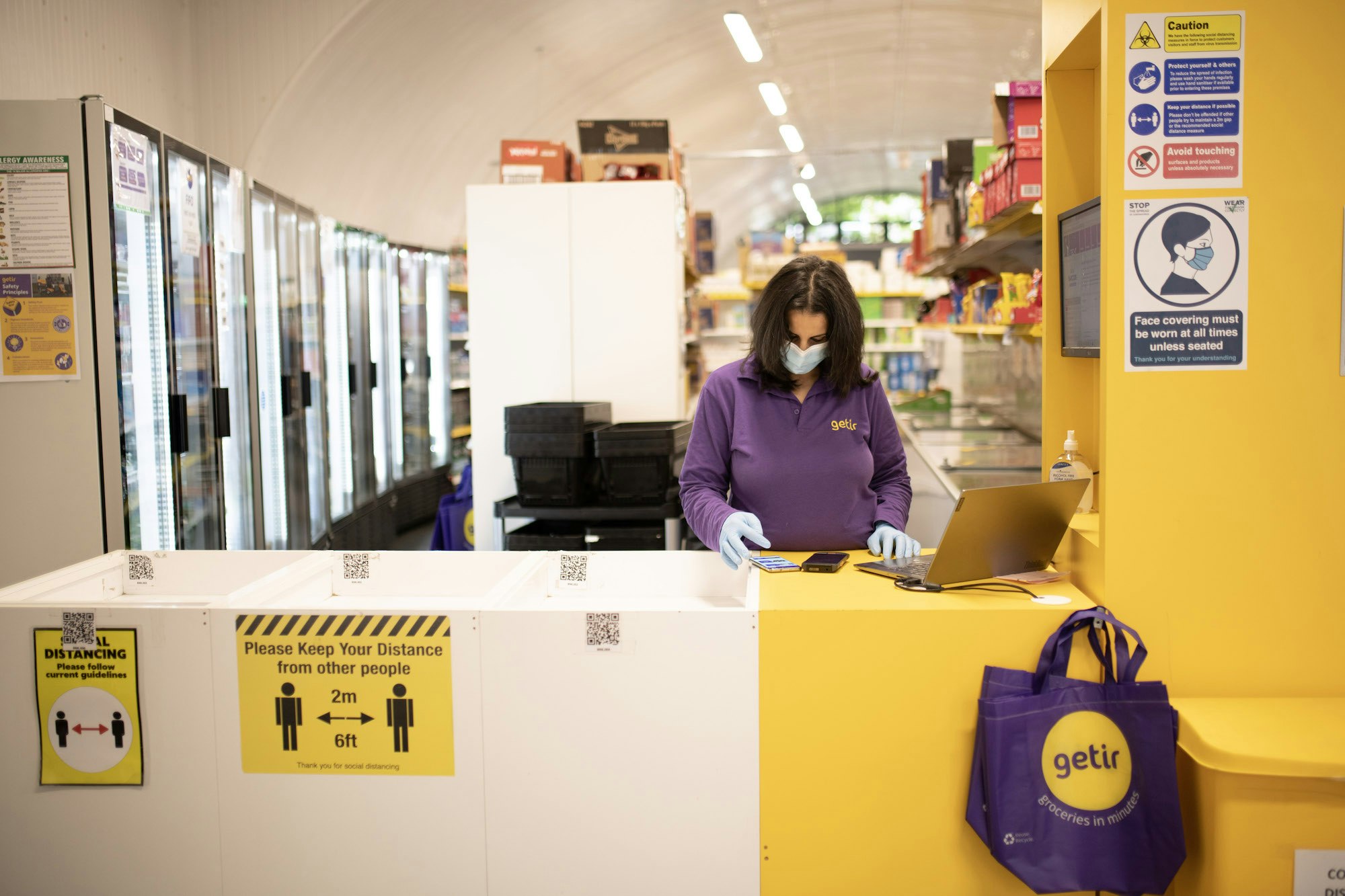It’s been a wild ride for speedy grocery, the craze that’s all about delivering things people crave — or forgot in their weekly shop — straight to their door in under 30 minutes.
But with aggressive competition, high cash burn and economic turmoil, how will the speedy grocery and dark store markets fare?
“The beginning of January last year was when lots of these new entrance delivery apps came into the market, fuelled by venture capital cash,” says Charlie Farr, global head of commercial at Lowe Rental, which provides commercial refrigeration on flexible rental+ plans. Lowe Rental was an early partner for some of the major dark store operators globally.
“The objective for these businesses at the beginning is not profitability, it’s all growth, so VCs want to get market share quickly and essentially get growth the fastest,” he continues. “It is a little bit like a race of who can grow the quickest and get market share the fastest.”
Under pressure, key players are laying off workers and getting rid of premises. Yet, some experts remain optimistic. We asked them about the lightbulb moments guiding dark stores’ survival.
High appeal, high cash burn
The appeal of dark stores is that customers can get their groceries delivered to their doorstep very, very quickly.
“It’s extremely surprising and rewarding to get what you need very quickly and I think as creatures of habit, that kind of instantaneous, quality gratification for having food instantly at your door is such a nice thing,” says Ray Williamson, warehouse and infrastructure manager at grocery delivery company Yababa, one of Lowe Rental’s partners. “Convenience is always one of the key factors in any business.”
But despite high customer demand, generating more than $9.2bn revenue in Europe, dark stores burn a lot of cash. According to Farr, a typical dark store operating in the ultra fast delivery space will need to work to 400 orders a day to break even.
With over seven fast delivery apps, on top of the market leaders like Uber, Deliveroo and JustEat just running in London, that’s a lot of customers companies need to sway away from the competition.
“It’s all customer acquisition and all of these apps will spend lots of money to acquire customers, to get them on to the platform,” says Farr. “There comes a point where some will be sticking, others won’t and you have to keep fighting for that share.”
Convenience is always one of the key factors in any business
More investment means startups can continue the fight over customers, but the VC boom in delivery apps is no longer.
“Where companies are now challenged in this space is raising more money or trying to reduce your cash burn,” says Farr. “If you’re running out of cash then you have a few hard decisions to make for survival and that is a lot around preserving money. So, the closing of stores and reducing headcount in order to extend your runway, which is cash you need in order to survive.”
The death of super fast delivery?
Farr says the reason some fast delivery companies are burning cash so quickly is because they are tech companies and lack experience in real estate and logistics.
“Towards the end of last year we were seeing that expertise and cash was running short with some of these companies,” he says, adding that ways to remedy this include consolidating speedy grocery companies and seeking external expertise.
“That means they're bringing in more skills to try and help optimise a lot of these businesses,” says Farr.
Williamson, who previously worked at Gorillas and Amazon, agrees. “A lot of the roadblocks come from experience,” he says, adding that a lot of companies will overinvest in their assets because they’re not able to make accurate calculations.
He says ultra fast delivery, such as 10-minute delivery times promised by the likes of Gorillas, were picked to attract customers, but have proven to be difficult to achieve in practice — a lesson Yababa has learned as a later player to the market.
“We’ve actually been able to learn a lot from the current Q-commerce [quick commerce] players,” says Williamson. “What Yababa is doing is deliveries within an hour, two hours and that’s allowed us to really take care of the quality of our processes and our delivery, and using that, we’ve not been affected as hard as the other players.”
However, Williamson adds automated technology could see the return of more reliable 10-minute delivery times.
“I think it’s mainly an unachievable target until there are fully automated dark stores,” he says. “I think technology will be the driving factor of Q-commerce’s success.”
Farr adds that robotics and AI are on their way.
I think technology will be the driving factor of Q-commerce’s success
“There is talk of robotics within this space in terms of using robotics or AI to be able to predict when people order at certain times and have that product ready and packaged to go faster,” he says. “Even robotics to be able to help pick, pack and collect.”
Turning to tech
But some companies have already turned to tech, as large volumes of orders mean the layouts and formatting of dark stores need to be optimised to remain efficient. Farr says this can make the difference between a profitable and a non-profitable startup.
“For example, we have a subsidiary business that we bought just a year ago called Abbey Design Associates and what they do is look at the flow of customers within live stores,” he says. “To see what’s the format, what’s the best way to optimise this space and format to improve delivery times.”
Lowe Rental promises help in the form of SMART enabled refrigeration, such as being able to understand and track the temperature, cooling and efficiency of those assets.
“We had heard of Lowe [Rental] through other players in the market and we quickly realised that the technology they have is far better tailored for the gastro market,” says Williamson. “It’s one of the backbones of how we’ve been able to set up.”
Refining operations
Farr says some of the volatility of the dark store market can be attributed to it being new.
“You can’t open 100 dark stores and hire 500 people and not expect there to be problems,” he says. “That’s the nature of being a startup, you’re experimenting, you’re trialling, you’re testing, you’re trying to finesse your model.”
Williamson goes one step further, predicting that later players, which have learned from the mistakes of the early ones, will succeed in the dark store business.
“It might be that these early-stage businesses are merely the pioneers for the space,” he says. “I don’t think they will be the kings of the future.”
That’s the nature of being a startup, you’re experimenting, you’re trialling, you’re testing, you’re trying to finesse your model
Supermarkets could also use the expertise of previous players to try out fast delivery themselves or even acquire or invest in some of these businesses. For example, supermarket chain Tesco partnered with Gorillas.
“An interesting part is the link between supermarkets and dark stores and how that partnership will grow,” he says. “The biggest thing of this is that for supermarkets they’ve seen it trialled and tested and there’s a lot of learning that they can take to their own business to try it slightly differently.”
There could also be opportunities to go straight to the source and streamline the supply chain.
“Local greengrocers and things like this might be a way the market develops,” says Williamson. “There might be a warehouse filled with greens that are being grown in a hydroponic system.”
While it’s difficult to raise money in this climate and some of the press around dark stores has been negative, Farr says the industry will keep consolidating and keep going.
“The dark store market, I’m assuming will only grow, though it might never take over the actual weekly shop,” says Williamson. “But it does take over the added additions to your weekly shop.”



